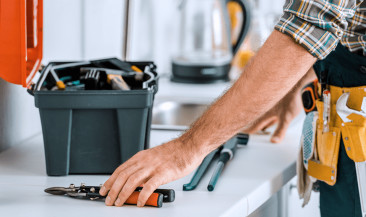
The job of residential property manager is multifaceted and can prove challenging. A residential manager must be well-versed in the laws and regulations of their jurisdiction, have the necessary skills, and be able to solve problems as they arise. These professionals are responsible for coordinating tenants with land owners and other parties involved in the rental process. They are responsible of setting rental rates for the property, marketing it, screening tenants, and negociating lease terms.
There are several ways to get into this industry. One way to get into this industry is to become licensed property manager. You will need to take classes and pass a test. Licensed managers must follow up on rent payments and have collection processes.
Another option is to hire an individual manager for your property. Individual property managers tend to be more involved in their operations and will often find creative solutions to their clients' problems. They will probably be more expensive than other managers.
Good property managers are essential for maintaining your property's condition. They will coordinate maintenance issues, make repairs and screen potential tenants. They will also know all aspects of renting a unit legally and will be able recommend good legal counsel.

Most residential managers are hired by homeowners, landlords, and condominium associations. There are many services they provide, and the range of their offerings is vast. They can offer one person operations or large corporations with hundreds. Property managers are responsible to coordinate and supervise maintenance, screen tenants, and maintain all administrative aspects of running buildings.
Larger companies can benefit from economies of scale. This is particularly true when managing multiple properties. This is why it is important to find a management firm with diverse resources and expertise.
You will have a better customer service experience. They will have a larger team to manage day-to-day operations. A competitive pricing structure will also be possible.
Some property managers have their own maintenance staff. Some rely on contractors to do repairs. It does not matter what contractor you choose, but it is important to keep track all expenses so that there are no IRS penalties.
Finally, a professional residential manager will find the best way for you to market your property. You will need to show images to entice potential tenants to visit your property. Moreover, you will need to show them all the amenities of the building.

If you have the right professional, it is possible to enjoy all the benefits of owning your property without having to deal with the hassle. Not only will they be able to find a tenant for your property, they will be able to collect rental income and keep you informed of any problems that might crop up. You can rest assured that your investment is in good hands.
You should first contact local real estate agents if you're looking for a job within the property management sector. They will help you find jobs that match your skills and interests. Search online for jobs in your area.
FAQ
Why should I hire a handyman rather than doing it myself?
Hiring a handyman saves time and money. It saves time and saves money. A handyman will have all the equipment and supplies necessary to complete the job correctly.
Where did handymen originate?
Although there are many handymen in the United States, almost all of them were not originally contractors. Most began their career as a tradesman and were taught how to do certain things by apprenticeships. As a result, they often possess great skill sets and a wealth of knowledge, which makes them very valuable assets to any company.
Can a handyman put in new fixtures or appliances for me?
A handyman can certainly help you out with these types of projects. You should know what fixture or appliance you want to install before you start.
Statistics
- Our handyman services for seniors are provided by professional senior helpers who have been serving the community for over 20 years with 98% customer satisfaction. (cantatahomeservices.org)
- A franchise was approximately $110,000 with a franchise fee of $14,900, according to a spokesperson for a national handyman franchise. (en.wikipedia.org)
- “Once the pandemic hit, that number fell to about 20%.” (inquirer.com)
- “Before the pandemic, 40% of people asked how we could estimate a job when we weren't there,” Rose recalled. (inquirer.com)
- Another estimate was that the market in the United States was $126 billion and was increasing by about 4% annually. (en.wikipedia.org)
External Links
How To
How to Replace a Broken Tile
Step 1: Take away the old tiles.
You can remove the old tiles from your floor and save them. You'll want to keep these intact if you use them later. To avoid any problems with replacements, take note of the pieces that have been damaged or lost.
Step 2 -- Choose New Tiles
Check out these options for tile replacement.
-
Find a new tile that's similar to the one you removed.
-
To match a tile, you can use the measurements you took after removing it. This makes it easier to get the right size without having to measure again.
-
Look for various colors, patterns, textures, sizes, shapes, etc.
-
Consider what grout you'd like to use (if any). Some people prefer to use a single color, while others love mixing it up.
-
Be sure to select a tile that is resistant against moisture.
-
The final thing to consider is the location of the tile. It will save you time and money if you make sure there's enough space for the proper installation.
-
Once you've picked your tile, place an order online or call your local Lowe's location to place it.
Step 3: Install the tiles.
You can install new tiles in the same way you did before. It is important to align them correctly so they fit together properly.
Step 4: Clean Up
Be sure to vacuum up all crumbs and debris before applying the last layer.
This will prevent dust and dirt from building up between the tiles.
Step 5 - Sand the Floor
Clean everything and sand the floor.
Step 6 - Finish Off
Once the floor has been completely smoothed, apply the protective coatings on the tiles. It is important to wait before you apply the protective coatings.
You can always use a "damp and dry" product on your floors to protect them from staining.
It won't solve every problem after your tiles are installed. You might want to add an anti-slip coating to the protective layer if there are a lot of children.
Finally, do not forget to keep the protective sealer on for several more weeks before you move back into your home.